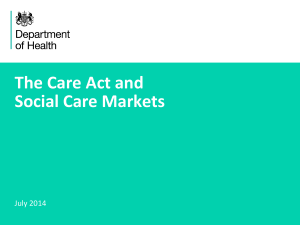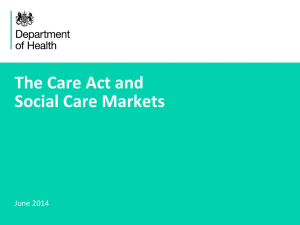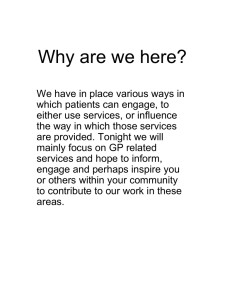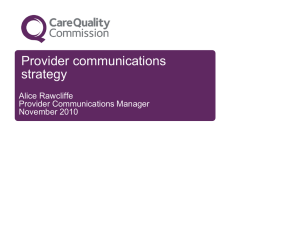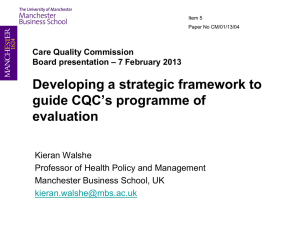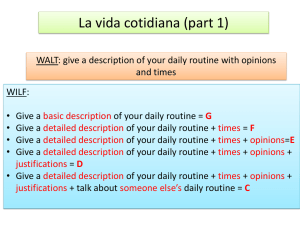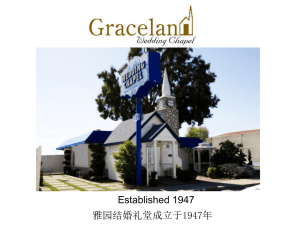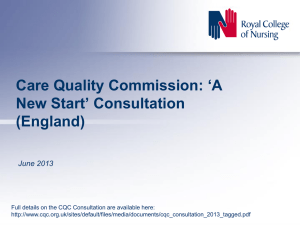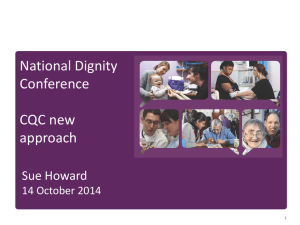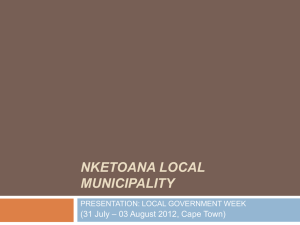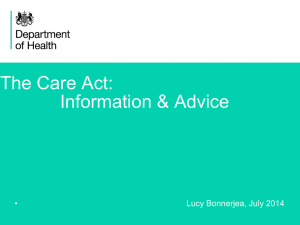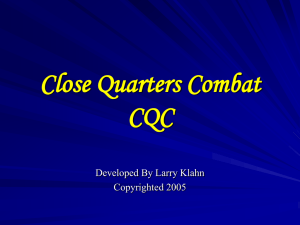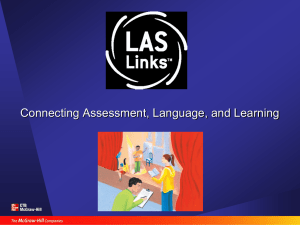TP9 Market Oversight and Provider Failure Sally Warren
advertisement
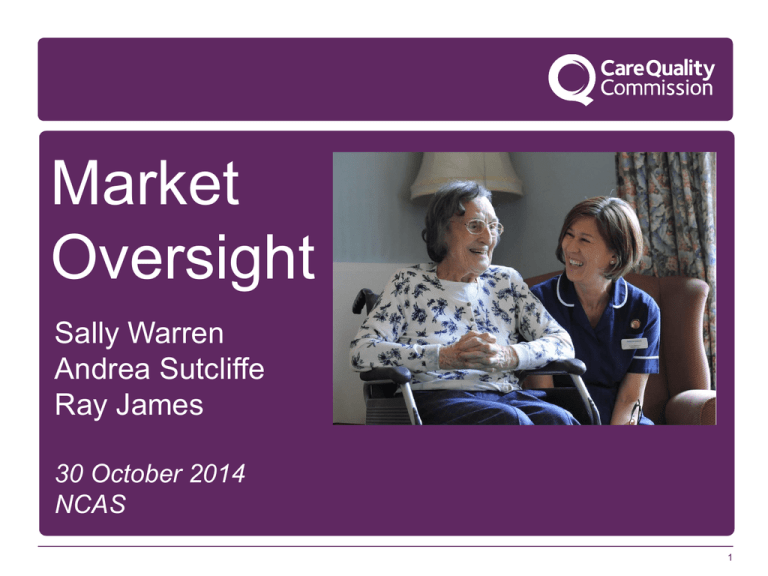
Market Oversight Sally Warren Andrea Sutcliffe Ray James 30 October 2014 NCAS 1 Andrea Sutcliffe Chief Inspector Adult Social Care 2 Why market oversight? Clear relationship between quality of care and finances 3 What can it do? Market oversight aims to: Spot if a ‘Southern Cross’ could happen again Protect people in vulnerable circumstances Monitor finances of ‘difficult to replace’ providers Provide early warning to local authorities Assist in co-ordinating the system response if failure occurs Market oversight is not there to: Protect providers from failure Pre-empt failure through disclosure of information 4 Timelines for market oversight • Development of CQC approach and methodology • CQC engagement on proposed methods Sept – Dec 2014 Jan – Feb 2015 April 2015 Identify and liaise with providers that meet the market oversight entry criteria • Formally notify providers of their inclusion in the scheme and respond to appeals • Start to undertake financial assessments of providers in the scheme October 2015 Bring specialist providers into the scheme 5 A co-production culture Communication 6 This session Market oversight regime in detail – Sally Warren Local authority local duty to manage continuity – Ray James 7 Sally Warren Deputy Chief Inspector Adult Social Care 8 Proposed model for market oversight Step 1 Activity Entry to scheme 2 Regular monitoring 3 4 Further risk analysis Provider engagement on risk 5 Regulatory action & engagement 6 Formal notification to LAs If concerns identified and addressed Key: Assessment of risk to financial sustainability (all provisional) no cause for concern/very low risk possible risk/medium risk likely risk/high risk risk clearly identified/very high risk 9 Step 1 - entry • Regulations set out entry criteria and reflect size, localised concentration and spread across the country • Specialist providers to be nominated via a panel • Currently expect around 50 corporate providers to be in the scheme • These operate around 400 registered providers which deliver services from about 4000 locations (30% of all care home beds in England) • Inclusion in scheme is a reflection of size, not a judgement of risk of failure 10 Proposed model for market oversight Step 1 Activity Entry to scheme 2 Regular monitoring 3 4 Further risk analysis Provider engagement on risk 5 Regulatory action & engagement 6 Formal notification to LAs If concerns identified and addressed Key: Assessment of risk to financial sustainability (all provisional) no cause for concern/very low risk possible risk/medium risk likely risk/high risk risk clearly identified/very high risk 11 Steps 2 and 3 – Intelligent Monitoring Aggregation of quality information, including ratings enforcement, information on concern A. Business context C. Quality To allow CQC to understand provider structure and operation model B. Financial Quarterly financial returns. Data is a prompt for further investigation and analysis 12 Proposed model for market oversight Step 1 Activity Entry to scheme 2 Regular monitoring 3 4 Further risk analysis Provider engagement on risk 5 Regulatory action & engagement 6 Formal notification to LAs If concerns identified and addressed Key: Assessment of risk to financial sustainability (all provisional) no cause for concern/very low risk possible risk/medium risk likely risk/high risk risk clearly identified/very high risk 13 Draft for discussion Steps 4 - 6: tools available to CQC If elevated risks are identified from financial and quality indicators, CQC will use tools to obtain further information before assessing if failure is likely Provider engagement on risk Activity Tools a Risk assessment meeting b Regulatory action and engagement Additional financial information requests c More frequent quality inspections d Key stakeholder engagement e Independent Business Review f Risk Mitigation Plan Formal notification to LAs g Notify relevant LAs 14 Transparency in market oversight • CQC will publish a list of providers within the scheme • Ongoing judgment of risk will not be published • LA(s) will be notified if failure is judged to be likely • Providers will be sharing commercially sensitive information and CQC will have systems to manage this appropriately 15 Ray James Vice President of ADASS 16 Role of Councils • Detail in Act, Guidance & planned Toolkit • Duty applies for all providers not just those in Market Oversight Regime • Duty not triggered if business has failed but service continues to be delivered (e.g. administrator running the business) • Duty falls to LA where service is delivered not on commissioning LA 17 Temporary duty • LA must involve the person concerned or those acting on their behalf • LAs have the power to compel information from the provider that would help in this (e.g. care plans, risk assessments) • Duty to cooperate • Excludes NHS commissioned care 18 Insolvency situations • Where an administrator appointed, LAs should not become involved in the commercial aspects of insolvency but should cooperate with the administrator • LAs should consider the impact on the provider should they withdraw contracts but this should not be at the expense of people’s wellbeing 19 Market shaping and contingency planning • Important that LAs have thorough understanding of local market (capacity, quality, types of service, trading conditions) • Should underpin contingency planning; LAs to consider how to respond to failure of a significant provider, linking with neighbouring authorities where necessary 20 Promoting responsible behaviours • Focus on wellbeing of those needing care • Information • Sharing – Building Trust • Availability of key personal data • Media Protocols • Local, Regional, National • Clear plan and accountabilities • Communication vital – LAs should have capacity to react quickly and effectively to minimise uncertainty and anxiety • Service Users, Carers, & Staff 21 Thank you www.cqc.org.uk enquiries@cqc.org.uk @CareQualityComm 22

